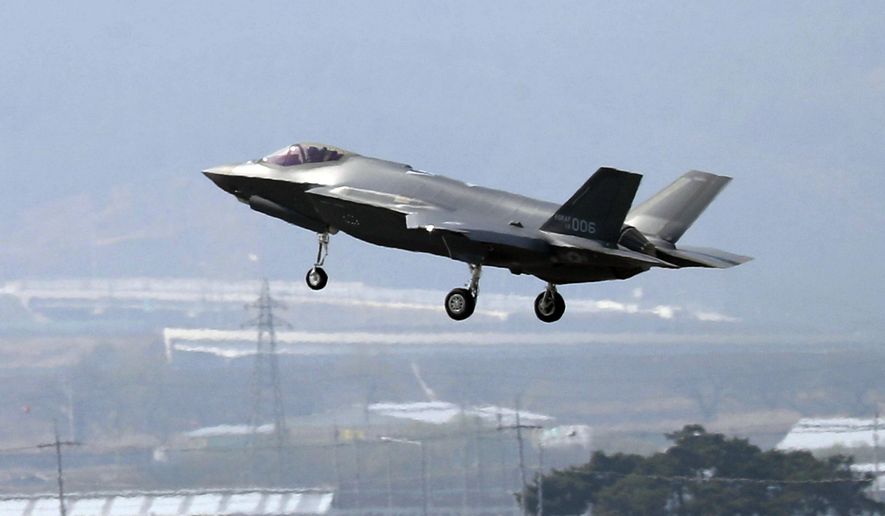OPINION:
Defying American warnings, Turkey began taking delivery of Russian S-400 missile air defense systems on July 12. That action by the government of Turkish President Recep Tayyip Erdogan is the latest in a years-long sequence of events through which Turkey has proven itself to be an adversary rather than an ally.
After taking power in 2014, Mr. Erdogan quickly began converting Turkey’s secular government into an Islamist state. That had been resisted by the Turkish army, which was constitutionally dedicated to maintaining the secular nature of Turkey’s government. In 2016, shortly after the Turkish military attempted a coup against him, Mr. Erdogan signed a treaty with Russia and Iran that committed the three nations to an alliance with the terrorist Assad regime in Syria to keep Bashar Assad in power.
Mr. Erdogan has blamed the United States for the coup attempt and has rid the Turkish military of every secular officer he could identify.
Turkish forces have fought against Kurdish forces allied to the United States in Syria and have threatened our forces there.
Through these actions, Mr. Erdogan has proven himself, and his government, to be our adversary.
In the months preceding the first S-400 delivery, the U.S. pressures on Turkey had begun. Turkey was warned that it could not buy both the U.S. F-35 and the Russian S-400.
The Turkish air force, like those of many of our allies, wanted to buy F-35s, our most advanced fighter. Those contracts will now be terminated. The eight Turkish companies manufacturing components for the F-35 will also be terminated.
Turkey’s purchase of F-35s has to be terminated because testing the aircraft against the S-400 would reveal whether the S-400 radars can detect the stealthy fighter and lead Russian engineers to possibly fine tune those radars to be certain of detection, a huge tactical advantage for Russia.
Last month, the Pentagon ended its training of Turkish pilots to fly the F-35 and ordered them to leave the United States by the end of July. Still, Mr. Erdogan continued with his purchase of the S-400s.
The first effect of the S-400 delivery will be the cancellation of Turkey’s contracts to receive F-35s and Turkey’s advance payments will be refunded. The eight Turkish companies manufacturing parts for the aircraft will be replaced.
Unspoken, but inevitable, is the cutoff of Turkey’s ability to share intelligence information with us. As a NATO “ally” Turkey is privy to much — but not all — of the intelligence information we and our allies gather. Such intelligence sharing has gradually been reduced at least since the 2016 treaty with Russia and Iran. Now, it should be cut off entirely.
The second effect should be sanctions against Turkey under the 2017 Countering America’s Adversaries Through Sanctions Act, (CAATSA). CAATSA requires President Trump to impose sanctions against any person or government that engages in a significant transaction with the defense or intelligence sectors of the Russian government. Turkey’s $2.5 billion deal for S-400 missile systems is unquestionably significant in both military and political terms.
CAATSA specifies 12 different sanctions from which the president is required to choose five. The sanctions range from prohibiting foreign exchange transactions in U.S. jurisdiction to a ban on travel to the United States of certain Turkish officials.
Mr. Erdogan has said that Mr. Trump should waive or delay economic sanctions against Turkey. It would be an enormous mistake to do so. Mr. Trump should order the imposition of whichever sanctions he chooses forthwith.
The third effect should be Turkey’s expulsion from NATO, which will be the hardest to achieve. It is no less important than the other effects, and in some ways the most important.
Mr. Trump has been entirely correct in criticizing most of our NATO allies for not contributing to their own defense. But being right has made him all the more unpopular among NATO heads of state. The most powerful leaders of the NATO nations other than the United States — Germany’s Angela Merkel, France’s Emmanuel Macron and, for now, the U.K.’s Theresa May — share a very low opinion of the president. They have proved themselves impervious to Mr. Trump’s admonishments on defense spending.
Mr. Macron and Mrs. Merkel continue to lead European efforts to save the 2015 nuclear weapons deal with Iran despite U.S. withdrawal and Iran’s violations of the agreement.
The NATO Treaty has no provision regarding the expulsion of a member, so any U.S. attempt to expel Turkey would have to be supported by all of the members other than Turkey. It would be a high-risk effort that should be attempted even if it is quite likely to fail.
If Mr. Trump demanded Turkey’s expulsion, that effort could be the dose of reality that our other European allies need to revive them to the threats we all face and their responsibility to help us deter or defeat them.
Any nation that, as has Turkey, allied itself with two of our most aggressive enemies — Russia and Iran — has already, by necessary implication, abandoned its commitment to the mutual defense obligation under Article V of the NATO treaty. Any NATO nation that has realigned itself with our enemies can no longer be a NATO member.
If NATO’s members refuse to deal with Turkey, and continue to refuse to invest in their own defense, NATO will have rendered itself a nullity.
• Jed Babbin, a deputy undersecretary of Defense in the George H.W. Bush administration, is the author of “In the Words of Our Enemies.”




Please read our comment policy before commenting.